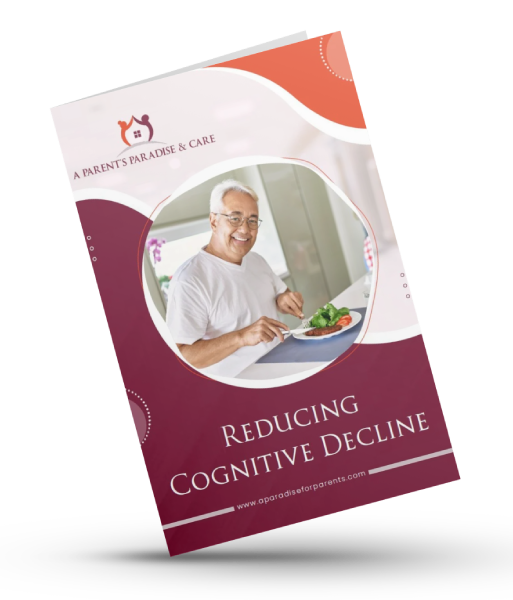Reverse mortgages can sound scary. You’ve worked really hard for a long time to pay off most or all of your mortgage. Why would you want to take out another loan on your home? You might reconsider if you need cash for something. Especially when you don’t have to make any payments on a reverse mortgage until after your death. Sound too good to be true? Would you consider it? It sure makes you ask what is the downside to a reverse mortgage? We’ll try to cover reverse mortgage pros and cons in this article.
Let me back up a bit. Reverse mortgages can be confusing. It probably would be good to start by explaining what a reverse mortgage is. A reverse mortgage is sort of like a home equity loan. You tap into the equity in your home and turn it into cash while you are still living in it. The difference is that you don’t have to pay it back until you either sell the home or you pass away.
What is the Downside to a Reverse Mortgage? The Requirements
Among the reverse mortgage pros and cons are that it is only for older people. Don’t even think of applying for a reverse mortgage until you are at least 62 years old. That may be a pro or a con depending on your perspective. Here are some of the other requirements you must follow to obtain a reverse mortgage. People may see these requirements as what is the downside to a reverse mortgage. You can see the full requirements here:
- You must own your home outright or have a single primary lien you hope to borrow against.
- Any existing mortgage you have must be paid off using the proceeds from your reverse mortgage.
- You must live in the home as your primary residence.
- You must remain current on property taxes, homeowner’s insurance and other mandatory obligations, such as homeowners association dues.
- You must participate in a consumer information session led by a HUD-approved counselor.
- You must maintain your property and keep it in good working condition.
- Your home must be a single-family home, a multi-unit property with up to four units, a manufactured home built after June 1976, a condominium, or a townhouse.
Note: These requirements are for a federally-insured Home Equity Conversion Mortgage (HECM). There are other kinds of reverse mortgages with different requirements. Talk to your bank or other financial professionals to determine what would be best for your situation. Asking what is the downside of a reverse mortgage is a good question. It may or may not be good for your situation. The best idea is to consult with your financial advisor or accountant.
Reverse Mortgage Pros and Cons for 2020
The reason I bring this up now is that the housing market is very uncertain. Besides putting millions of people out of work, bankers are tightening up their lending standards. And tons of people who own multiple properties they rent out on websites like Air BnB for short-term travelers have not received any income for several months.
All of these factors will put pressure on the housing market. Right now, it seems to be holding up pretty well. As time wears on though, the market may fall significantly. If and when the market does fall, many homeowners will lose some, if not all, of their equity.
The beauty of a reverse mortgage is that if you pass away while still owning the home, and the property falls in value, the bank cannot come after your family for the difference. Your family can either just turn over the property to the bank, or pay off the loan at 95% of the home’s value.
Here’s an example. Say your elderly parents own a home free and clear (no mortgage payment) that is worth $200,000. There’s a formula to figure out how much money you can take out in a reverse mortgage based on your age and other factors. Let’s just say the bank gives your parents a reverse mortgage for $150,000.
Interest on the loan accumulates for a couple of years because your parents don’t have to make payments on a reverse mortgage. Although the interest accumulation is an answer to the question what is the downside to a reverse mortgage, interest is a part of any loan.
Reverse Mortgages and the Pandemic
Then the Pandemic hits. They value of your parent’s home drops to $100,000 when they pass away. You basically have two choices at this point:
- Give the home back to the lender – in which case you keep whatever is left over from the $150,000 borrowed
- Pay off the loan at 95% of the appraised value to keep the home ($95,000 payback)
Either way, you make out pretty well if your parents left you proceeds from the loan. The lender, and the government backing the lender, knew these conditions were possible when they wrote you the loan. You are fulfilling your obligation with the loan.
Seems like the best option is option 1. What if the housing market does appreciate as the economy recovers? Well then you could sell the home and receive more equity from it. If the housing market tanks due to the Pandemic, then you already have your cash out. The government will have to deal with a depressed housing price when you turn it back into them.
So you may be asking what is the downside to a reverse mortgage in normal times. But maybe there isn’t much of a downside now?
Please remember that I am not offering financial advice (see disclaimer below). This is only for informational purposes. It’s very important to talk to a financial professional about your particular situation. Many people use reverse mortgages for assisted living or other long-term care options. Your financial professional will have a good idea what makes sense.
Disclaimer: The Content is for informational purposes only, you should not construe any such information or other material as legal, tax, investment, financial, or other advice. Nothing contained on our Site constitutes a solicitation, recommendation, endorsement, or offer by HII or any third party service provider to buy or sell any securities or other financial instruments in this or in in any other jurisdiction in which such solicitation or offer would be unlawful under the securities laws of such jurisdiction.





